Voice to Territory parliament motion passes with bipartisan support
A step towards establishing the Territory’s own kind of voice to parliament has passed with bipartisan support. Here’s how it could work.
Northern Territory
Don't miss out on the headlines from Northern Territory. Followed categories will be added to My News.
Politicians from both sides have taken a step towards establishing the Territory’s own kind of Indigenous voice to parliament.
Independent Mulka MLA Yingiya Mark Guyula on Wednesday successfully moved “a process to review bills introduced to the assembly for their impact on First Nations Territorians”.
However the process will be a long one, with the Legal and Constitutional Affairs Committee to report back to parliament on the matter by May next year.
The committee will consider whether the body to conduct these reviews is made up of Indigenous Territorians or an assembly committee advised by First Nations people.
It could also result in all legislation being measured against how it “affirms and enhances the right of First Nations people” to practice their traditional laws and autonomy, as well as reflect “the principle of free, prior and informed consent”.
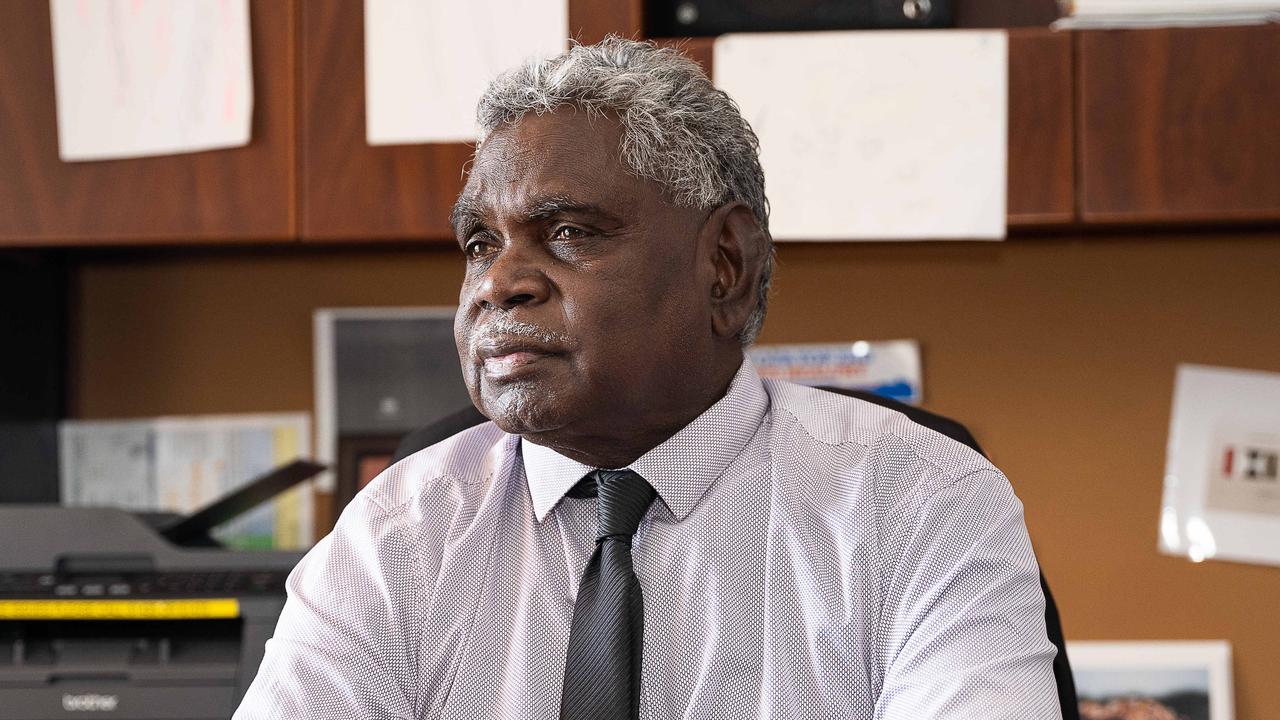
Mr Guyula said the advisory body would result in greater accountability in parliament.
“In many ways this is a similar discussion to the Voice to Parliament,” he said.
“How does the parliament ensure that First Nations voices are heard when it is making laws that have great effect on First Nations communities?
Mr Guyula said despite there being several Indigenous MLAs, “independent voices from the grassroots” with authority to speak for their people must be heard.
He also said current parliament structures were not compatible with Yolngu culture.
“Parliaments across Australia have a horrific history of representing our people,” he said.
“From colonisation, there has been a disastrous impact of laws and policies created by successive governments.
“We need to make drastic movements and make sure that our two systems of law can work together.”
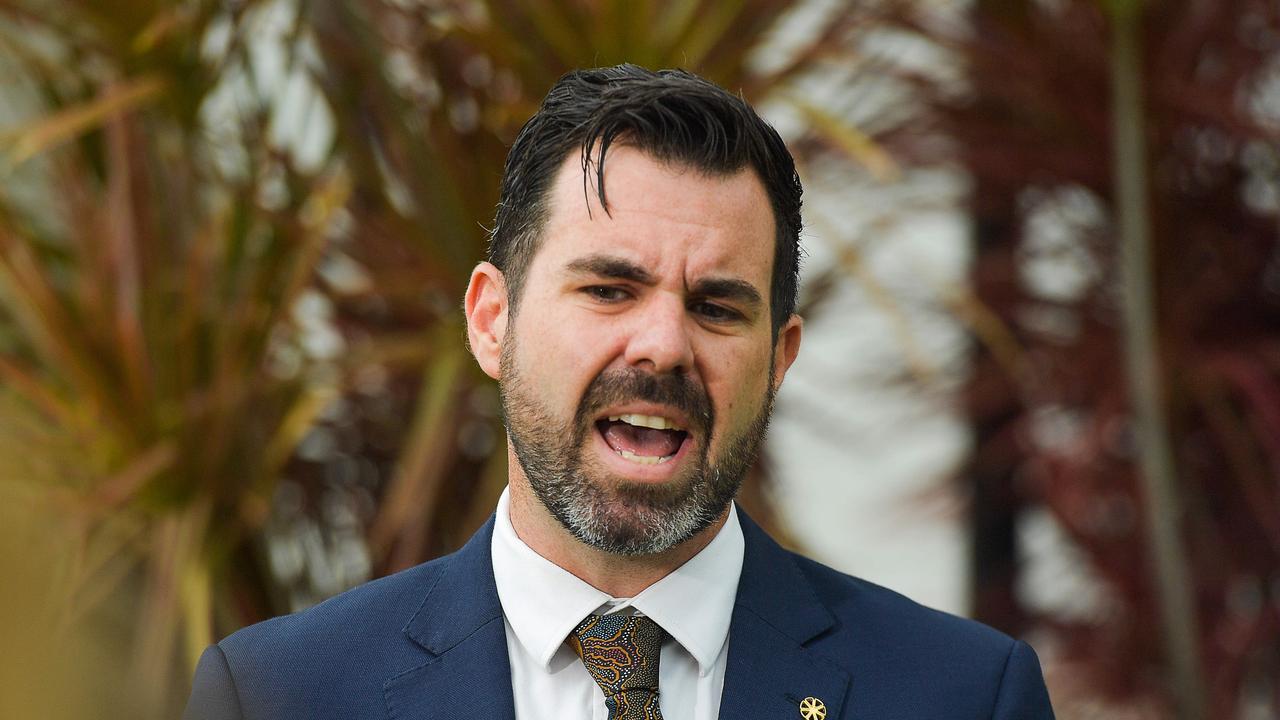
Attorney-General Chansey Paech said it was an important motion that had Labor’s full support.
“We must consider the impact on Aboriginal people of any legislation before the assembly, consistent with our commitments under Closing the Gap,” he said.
“It is a really powerful motion … (with) the opportunity to change so many lives across the Northern Territory in such a positive way.”
While eight Labor members spoke to the motion, Barkly MLA Steve Edgington was the only CLP member to voice the opposition’s support.
But he warned the party was focused on ensuring “we are not pushing band-aid solutions for a problem that stems from failed Labor policies”.
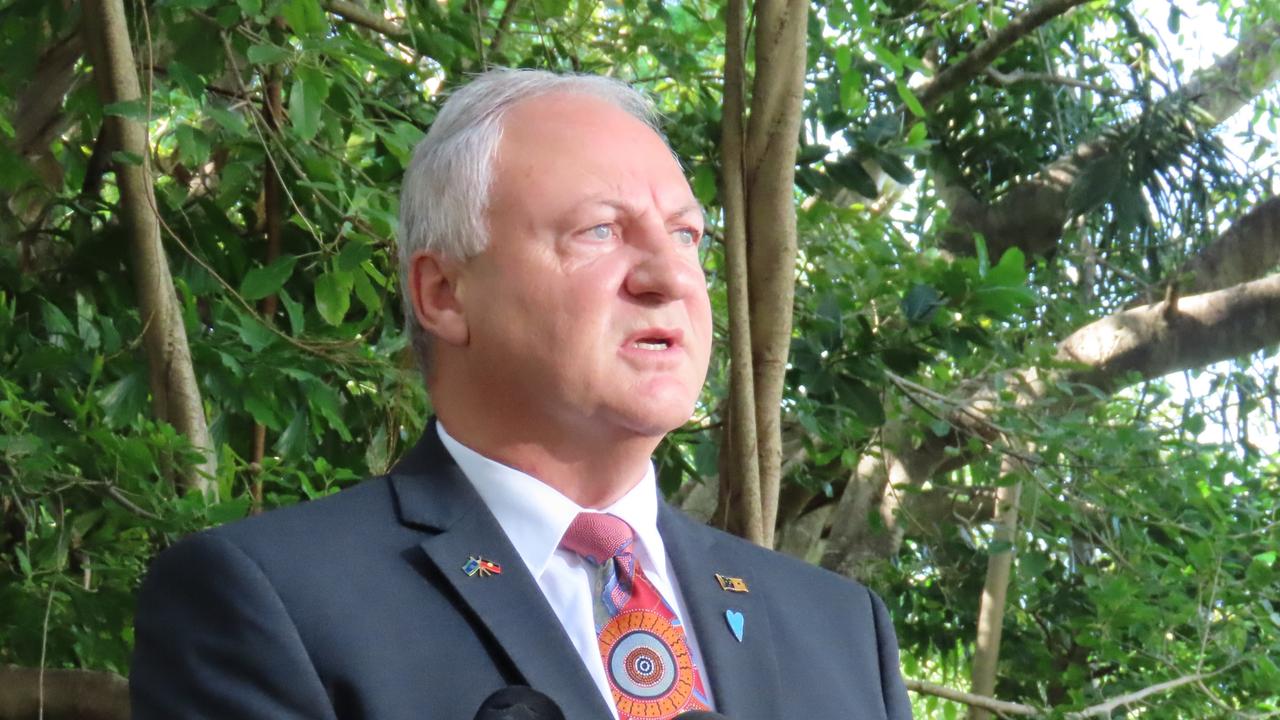
Mr Edgington also suggested there were other ways the voices of First Nations Territorians could be heard.
“The Labor government’s local decision-making framework is nothing more than a band-aid for what should be a return to local Aboriginal councils,” he said.
“In 2006 the Labor government announced the amalgamation of nearly 60 Aboriginal community councils into eight shire councils … nearly two decades on (this) structure is still not working for Aboriginal Territorians.”
The CLP parliamentary wing has a neutral stance on the federal Voice, despite the party rank and file and Senator Jacinta Nampijinpa Price’s strong opposition.
Opposition Whip Josh Burgoyne on Thursday said the CLP supported an inquiry into Mr Mulka’s idea of the advisory body but would not be drawn to specifically supporting the body itself.
“I look forward to the report coming back in May of next year to see what the recommendations are,” he said.
It comes as Mr Guyula said he did not support any fracking on his East Arnhem country, questioning the government’s promise to grant traditional owners the right to veto the Beetaloo Basin project and others.
Mining Minister Nicole Manison has maintained the project has traditional owners’ backing.
“There are many different voices out there but if traditional owner groups that are negotiating to having onshore gas development happening on their country don’t agree with it, it simply will not happen,” she said.
Labor shuts down CLP bid to toughen bail laws
The Country Liberal Party’s attempt to bring new bail laws to parliament on urgency has been shut down by the Labor majority.
Opposition Leader Lia Finocchiaro on Wednesday afternoon sought to debate her party’s proposed amendment that would give all violent offenders a presumption against bail.
However, the Labor bloc voted against Ms Finocchiaro’s move to suspend all standing orders and debate her Bill, which was introduced earlier that morning.
A government spokeswoman said Labor members adjourned debate as they had not all seen a copy of the legislation, nor were offered a briefing.
It comes after Labor passed its own bail reforms on urgency in March sittings, which created a new presumption against bail for violent offences involving a weapon.
At the time the CLP also tried to put forward amendments to broaden the laws, which Labor did not support.
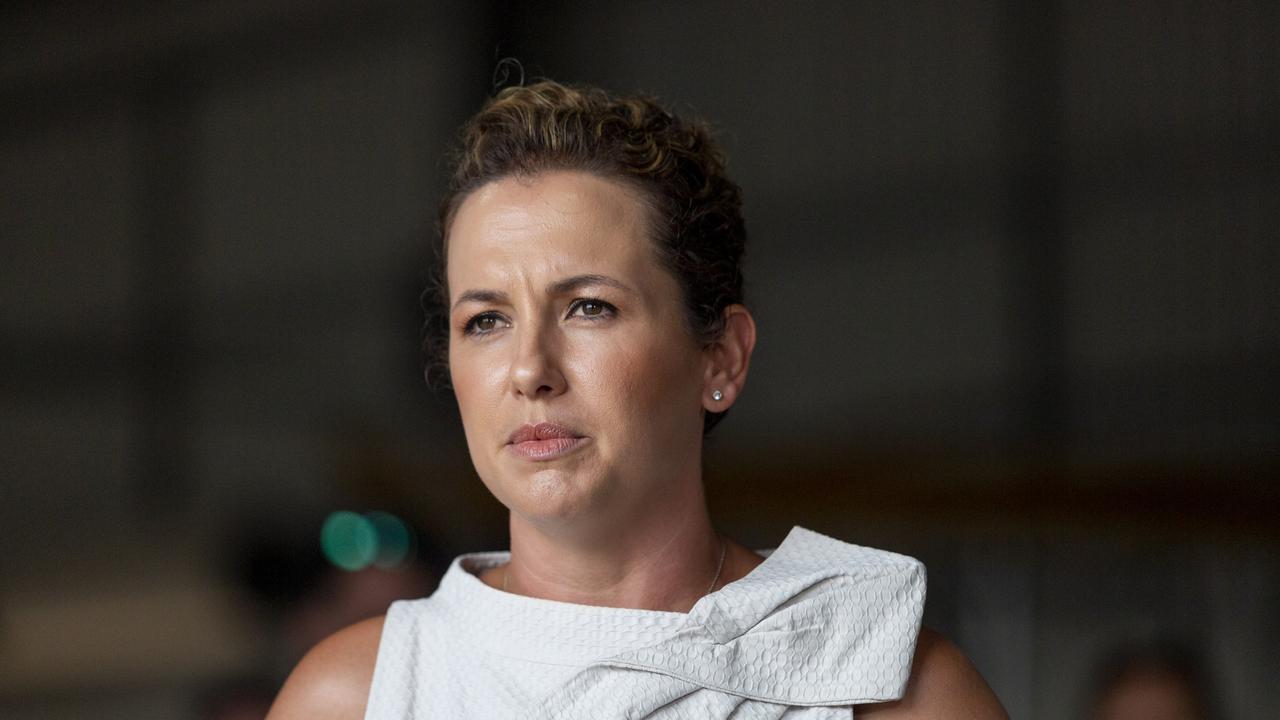
Ms Finocchiaro said those bail reforms were “little more than window dressing” and did not go far enough.
“People in the community need to know that serious violent offenders, with or without a weapon, start with a position of no bail,” she said.
“We want to remove the element of weapon from (the laws) because we believe that whether it’s someone picking up a rock or someone using their fist or a motor vehicle, that that should be captured by this legislation.
“What Labor did is specifically carve all of that out, making it limited to serious violent offending with a very narrow list of weapons.”
However during a press conference, before the CLP legislation was debated in parliament, Chief Minister Natasha Fyles indicated her party would not support it.
“The leader of the opposition likes to talk crime, she likes to talk tough on crime,” Ms Fyles said on Wednesday morning.
“We already have strong bail laws in the Northern Territory.
“We work with police and others in the justice space to ensure we’re agile in making changes as required.”
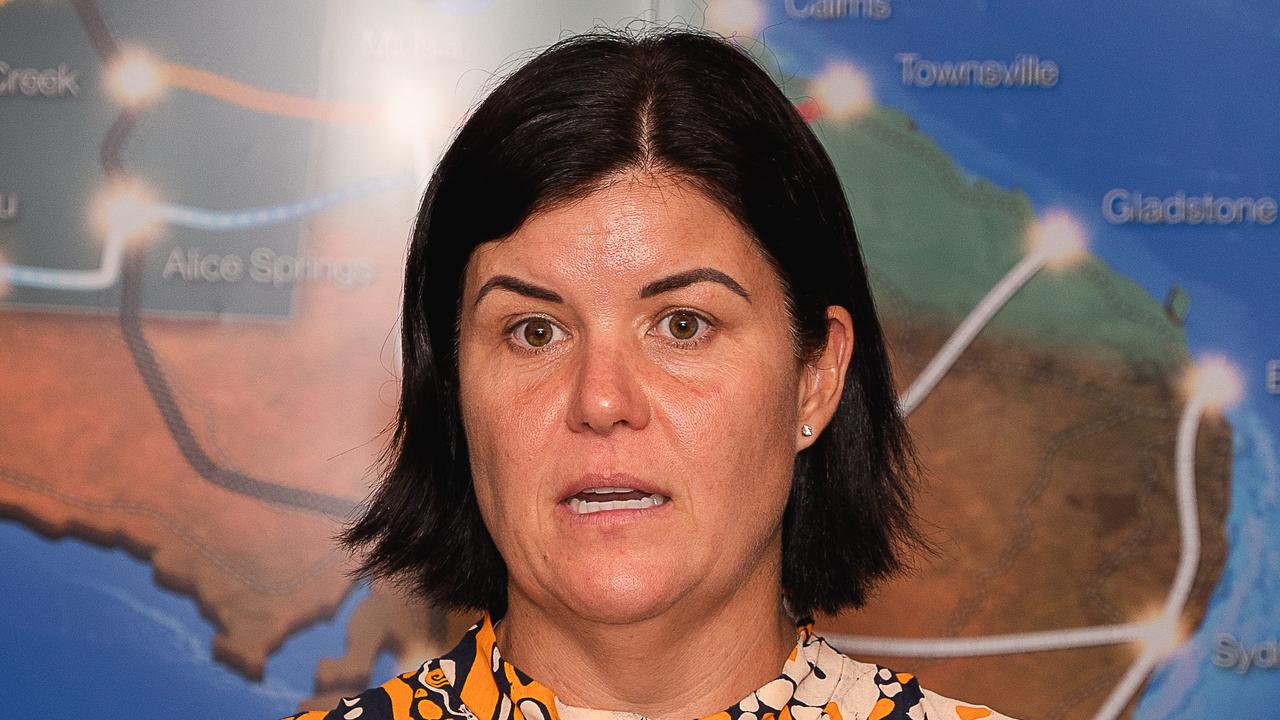
Ms Finocchiaro said her legislation was an opportunity for both parties to work together on tackling crime.
“If the Labor government are really serious about driving down crime, they should walk into parliament and work with the CLP to deliver meaningful change,” she said.
“If that means they want to bring forward amendments, then we are absolutely open to working with them.”
Ms Finocchiaro also hit out at the government’s internal bail review, which the government said would not be publicly released.
The Labor bloc also voted against the opposition’s move to hold an inquiry into the “police crisis” during Wednesday’s parliament sittings.
It marked the seventh time the CLP had failed to establish a select parliamentary committee on the issue.
Capsicum spray laws pass parliament despite missing details
Laws granting transit officers the power to use capsicum spray have passed Territory parliament.
It was one of several government announcements made in the wake of 20-year-old bottleshop worker Declan Laverty’s death.
The Public Transport (Passenger Safety) Amendment Bill 2023 passed during Tuesday’s sittings with bipartisan support, despite the opposition criticising the legislation’s lack of detail.
Along with granting transit safety officers on buses and at bus stops the power to use oleoresin capsicum (OC) spray, the Bill updates their responsibilities to “maintain safety and security”.
OC spray must only be used in situations as “a last resort” and when “reasonably necessary”.
It follows new powers, passed in September, allowing transit safety officers to ban and arrest passengers.
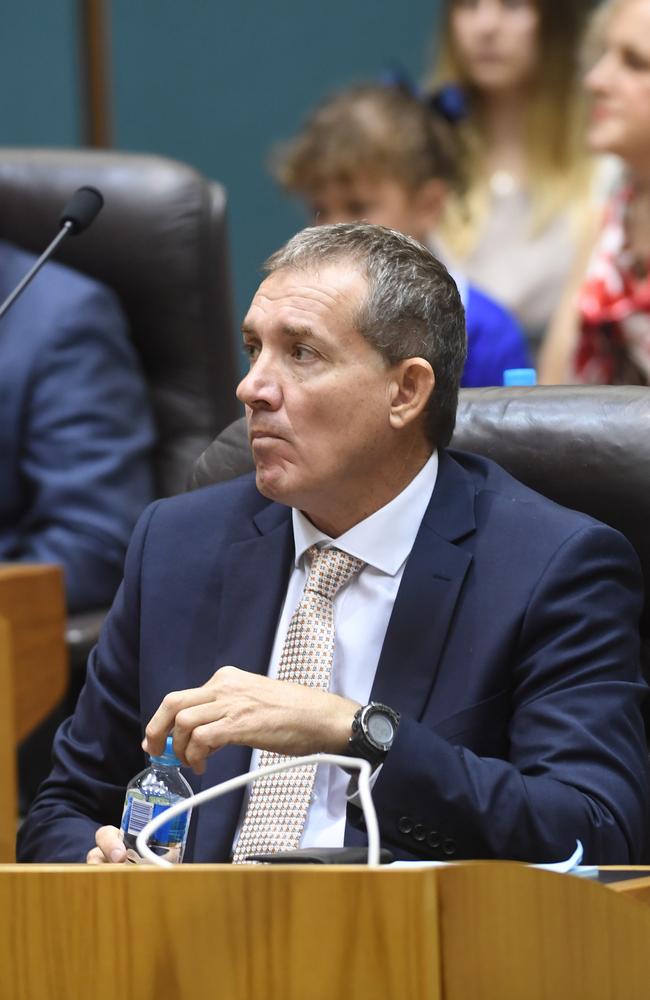
Deputy Opposition Leader Gerard Maley hit out at the fact the government was still writing the guidelines of use – criticisms mirrored by the union representing security guards.
“At a briefing the opposition was provided, we were surprised and we were told the details were being worked out,” he said.
“We have still not seen a copy of those guidelines and neither has the Northern Territory.”
Mr Maley also raised concerns innocent bus passengers could be harmed in an officer’s attempt to control offenders.
“The potential for unintended consequences is extremely high,” he said.
“Will they potentially be exposing children, pensioners, people with a disability to OC spray on buses?”
Infrastructure Minister Eva Lawler said while training had started, she confirmed her department still had to finalise the directions of use and that they would not be publicly released.
She said existing government-employed transit safety officers would undertake eight hours of “comprehensive” training to use OC spray.
“Transit safety officers will attend mandatory OC spray refresher training every 12 months as well … the training is based on best practices and nationally recognised training,” she said.
“This Bill is about community safety and the safety of our workers.”
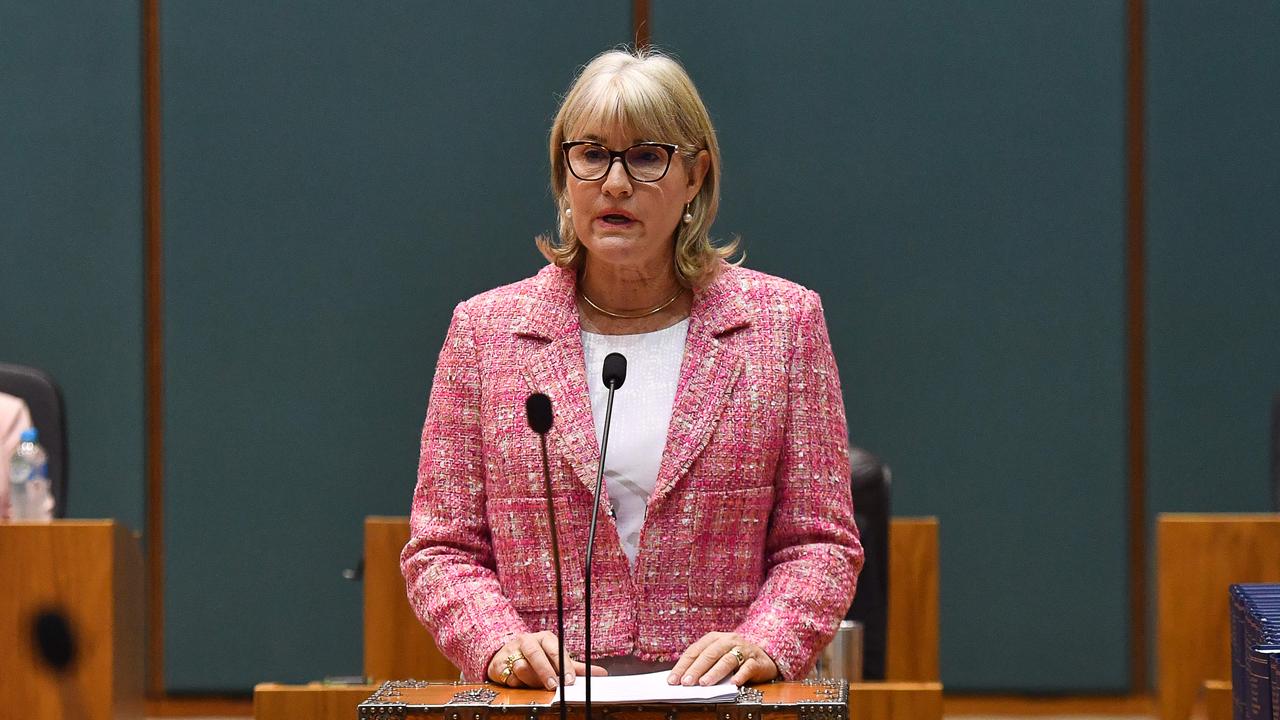
CLP’s Namatjira MLA Bill Yan, a former corrections officer, questioned whether the training would be adequate.
“For police officers and prison officers who are approved to use capsicum spray in the territory, their training is around about eight hours,” he said.
“But that’s on the back of numerous hours of training on defensive tactics and use of force … they do weeks of training in that area.”
Mr Yan said if that depth of training was not provided the government would “come undone”.
Fannie Bay MLA Brent Potter said it was inevitable other bus passengers could get sprayed.
“Secondary spray will occur, there’s no doubt about that,” he said.
“But in saying that, we’d rather secondary spray than someone losing a life or being injured from someone using a knife.”

Independent Mulka MLA Yingiya (Mark) Guyula did not support the Bill as he said transit safety officers already had “great powers”.
“We know the people most impacted by this Bill will be First Nations people, because our people are the most socially disadvantaged,” he said.
Police Minister Kate Worden said the Bill had the support of both transit officers and police.
“It was something that came out of the social order response team that was set up specifically at Casuarina to look at the rise in escalation problems that we were seeing,” she said.
More Coverage
Originally published as Voice to Territory parliament motion passes with bipartisan support








